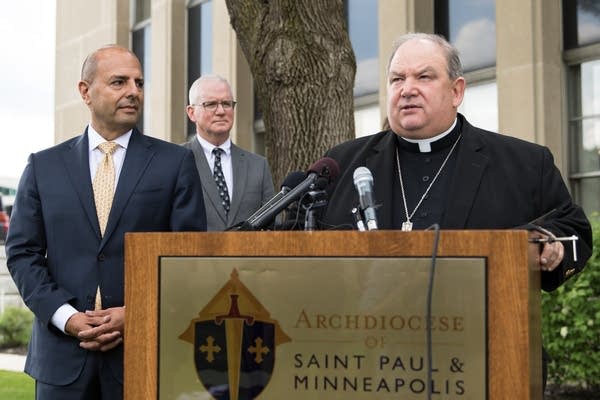Archdiocese needs $40M for sex abuse settlement. Here's where it's looking

Archbishop Bernard Hebda speaks during a press conference regarding the settlement with the Archdiocese outside the archdiocese offices in St. Paul on May 31, 2018.
Lacey Young | MPR News
Go Deeper.
Create an account or log in to save stories.
Like this?
Thanks for liking this story! We have added it to a list of your favorite stories.


